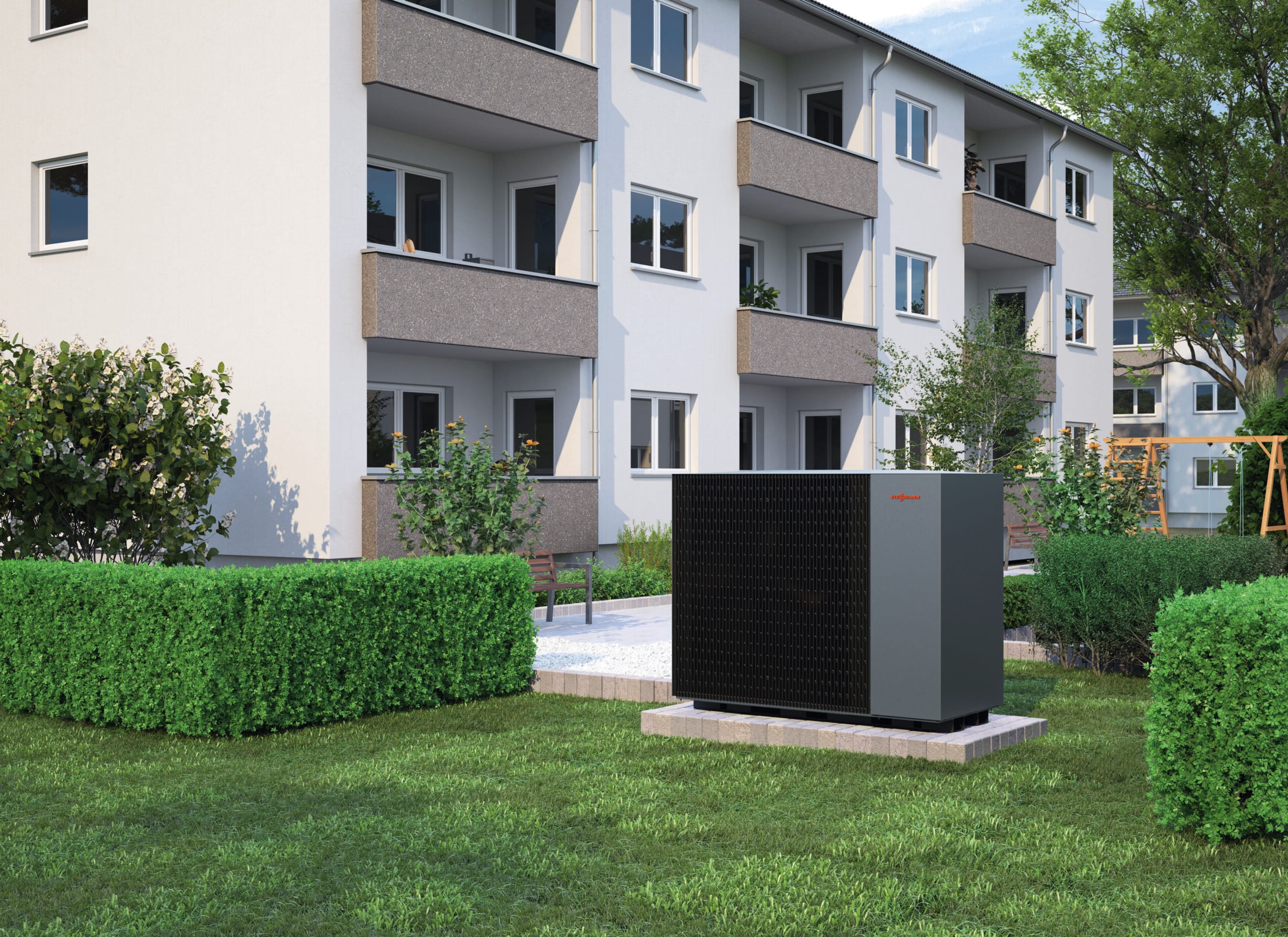Heat pumps - heating with the energy of nature
As your expert for modern heating technology, we offer you sustainable heating solutions that significantly reduce your energy costs and protect the environment at the same time. A heat pump uses free environmental energy from the air, ground or groundwater and converts it efficiently into cozy warmth for your home.

Innovative heating technology for your home
You can rely on our proven process. We support you from the initial consultation to the finished installation - professionally, transparently and efficiently.
1
Initial consultation
2
Individual planning
3
Professional installation
4
Service & aftercare
What types of heat pump are there?
Various factors play a role in choosing the right system: available space, property characteristics, legal requirements, budget, desired energy efficiency, maintenance costs and environmental aspects. Here you will find a description of the different types of heat pumps:
Air-to-air heat pump
The air-to-air heat pump, which is mainly used in air conditioning systems, uses the outside air as a heat source and transfers this heat directly to the indoor air. It is characterized by simple installation and low acquisition costs, but loses efficiency at very cold temperatures.
Air-to-water heat pump
The frequently used air-to-water heat pump also extracts heat from the outside air, but transfers it to the heating water. It offers a good compromise between installation costs and performance, although its efficiency depends on the weather conditions. This variant is suitable for both heating and hot water preparation.
Brine-to-water heat pump
The brine-to-water heat pump, also known as a geothermal heat pump, uses constant geothermal heat via ground collectors or geothermal probes. It transfers this heat to the heating water and is characterized by high efficiency. However, the purchase costs are higher and official permits and sufficient land area are required.
Water-to-water heat pump
The most efficient variant is the water-to-water heat pump, which uses groundwater as a heat source. This requires deep boreholes, which we produce for our customers. This variant achieves the highest performance figures, but requires two wells and is subject to approval (a water permit is required). The availability of suitable groundwater is a prerequisite for operation.
Deep drilling required?
At Schicker, we carry out professional deep drilling for brine-water and water-water systems to maximize the efficiency of your heat pump. In the case of water-to-water heat pumps, we create the necessary production and absorption wells and support you in obtaining the water permit. The geology also has an influence on feasibility and costs.
We do not leave our customers alone with their challenges. Schicker stands for a complete service - from the heat pump foundation to deep drilling.
Frequently asked questions
We will be happy to answer all your questions in a friendly phone call or by e-mail.
Contact us nowWhich heat pump is right for my home?
The choice of the optimum heat pump depends on several factors: Property size, ground conditions, building insulation and your individual needs. Air-to-water heat pumps are particularly flexible to use and require minimal installation effort. Ground source heat pumps offer maximum efficiency, but require more space. In a personal consultation, we will analyze your situation and recommend the right system.
How high are the savings with a heat pump?
With a modern heat pump, you can obtain up to 75% of your heating energy from the environment free of charge. The exact savings depend on various factors, such as the annual coefficient of performance (COP) of the heat pump, the electricity tariff and your heating behavior. In combination with a photovoltaic system, operating costs can be reduced even further. We will be happy to provide you with an individual profitability calculation.
How high are the operating costs of underfloor heating compared to conventional heating systems?
Underfloor heating is particularly efficient as it works with low flow temperatures of around 28-40°C. Compared to conventional radiators, which often require temperatures of 60-70°C, you can save up to 30% energy. It is particularly economical in combination with a heat pump or solar thermal energy.
Is my house suitable for a heat pump?
In principle, a heat pump can be installed in almost any building. It works best in well-insulated houses with panel heating (underfloor or wall heating). However, efficient solutions are also available today for existing buildings with radiators. We examine the conditions of your house and develop a customized concept that optimally meets your requirements.